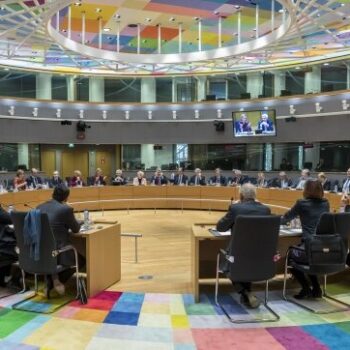Summary
The effort to reach agreement on the next phase of the global regime to tackle climate change that will culminate in Copenhagen in December this year is arguably the most complex international negotiation ever attempted. Its success or failure will have very far reaching consequences for human prosperity and security.
These negotiations are taking place against a back ground of growing concern within the scientific community that climate change is occurring more rapidly, and that its impacts on humanity are sooner and greater, than previously anticipated. The gap between the action needed to avoid dangerous climate change and that yet being taken politically is widening.
Three political forces will shape the prospects for a successful outcome:
- the pressure to arrive at an agreement that moves the world beyond the current regime in terms both of level of ambition and inclusiveness of participation by December;
- the re-entry of the United States into the effort to construct a global regime to tackle climate change;
- the impact on the politics of climate change of the depth and length of the global recession.
The interaction between these major political factors will add further complexity to already an already difficult process. Furthermore, there are five emerging tensions which could distract or derail the negotiations by further compounding the scope for misunderstanding or mischief. The tensions generated by these issues are potentially highly disruptive to the focussed political effort needed to reach agreement.
These are:
- the choice of carbon taxation or emissions trading as the preferred policy option;
- an extension of the Kyoto Protocol or the negotiation of a new Protocol which might or might not include the Kyoto mechanisms;
- whether to base climate policy on emissions targets or cumulative carbon burdens;
- the primacy of mitigation or adaptation ( including geo-engineering ) as the focus for policy;whether carbon burdens should properly be counted at the point of production or the point of consumption.
Together these three forces and five issues make up a political risk landscape that must be successfully navigated in order to reach a worthwhile agreement in Copenhagen. It will be important for political leaders to cut through this morass of issues to ensure that the three most essential elements of progress are achieved. These are:
- the preservation and strengthening of the Kyoto mechanisms so that there continues to be a carbon price;
- sufficient genuinely additional funding for adaptation and technology transitions in the developing world to ensure agreement;
- an alignment of timetables so that the US can successfully rejoin the global regime.


